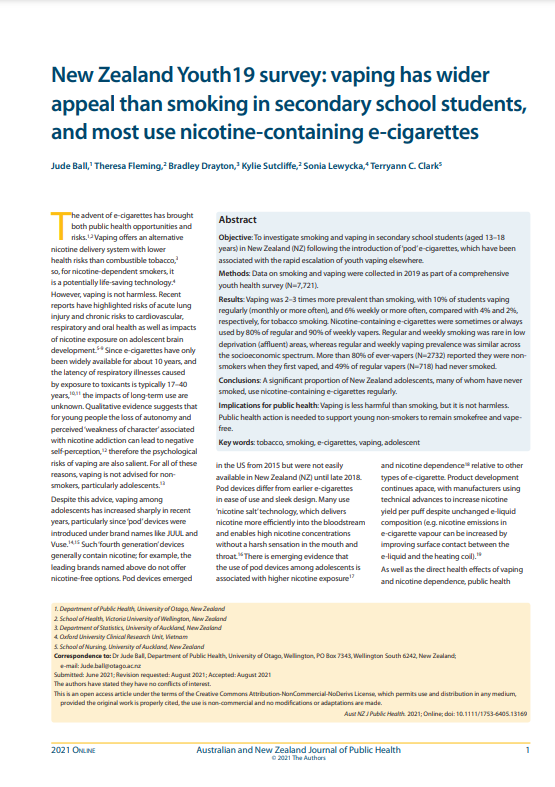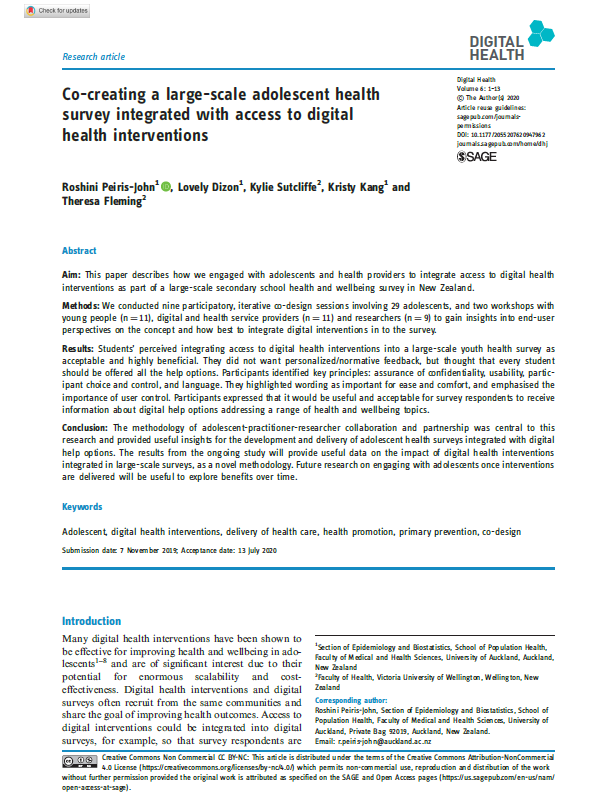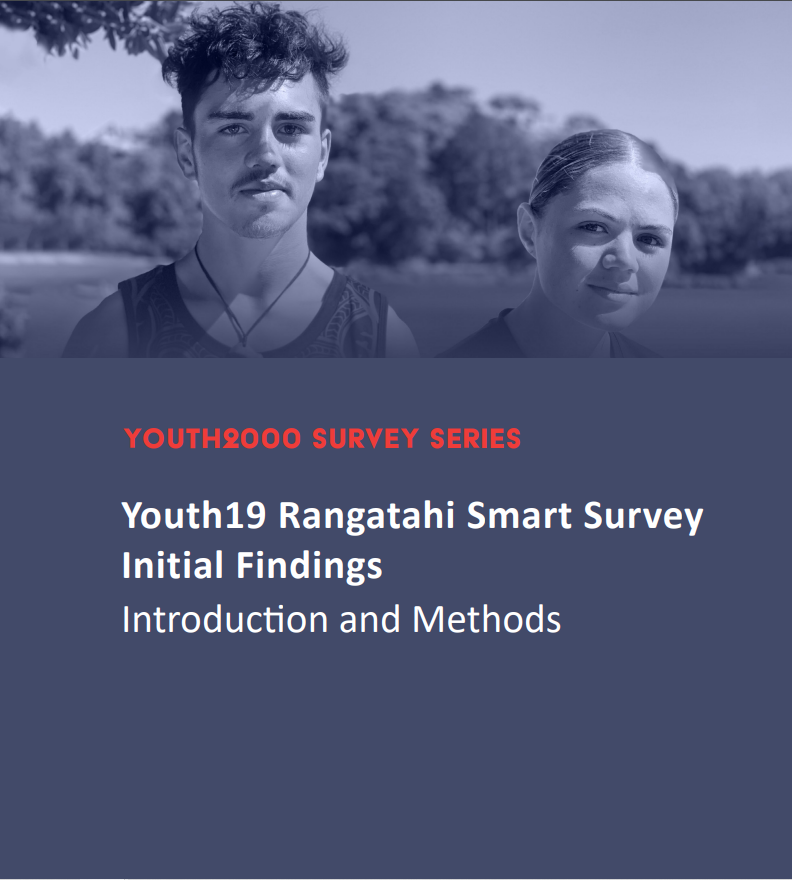In this report we use Youth19 data to explore the wellbeing of Aotearoa secondary school students with the following identities :
• Rainbow rangatahi Māori
• Pacific Rainbow young people
• Rangatahi Māori with a disability or chronic condition
• Pacific young people with a disability or chronic condition
• Rainbow young people with a disability or chronic condition
• Young people who are both Māori and Pacific.
See also our ‘Intersecting Identities’ briefs, containing a snapshot of key findings for each group.
And watch our webinar, presented by A.Prof Terryann Clark, Dr Jemaima Tiatia-Seath, A.Prof Terry Fleming, & Rosina Buchanan.
This brief presents key intersectionality findings for Rainbow young people with a disability or chronic condition, drawing on findings from our Negotiating Multiple Identities report.
This brief presents key findings for Pacific young people with a disability or chronic condition, drawing on findings from our Negotiating Multiple Identities report.
This brief presents key intersectionality findings for Pacific young people who also identify as rainbow, drawing on findings from our Negotiating Multiple Identities report.
“The beautiful thing about the growing number of young New Zealanders who name Asia as a place of origin is that they simply cannot be contained within the boxes that New Zealand often assigns to them – and their many special strengths, challenges, and experiences are mapped out in these pages.” –– Anya Satyanand, CEO Leadership New Zealand
This report highlights the health and wellbeing findings for Asian students living in Aotearoa from the Youth19 Rangatahi Smart Survey. Watch our launch webinar here.
This brief presents key intersectionality findings for Rangatahi Māori who also identify as rainbow, drawing on findings from our Negotiating Multiple Identities report.
See these findings discussed in our webinar. Presenters: A.Prof Terryann Clark, A.Prof Terry Fleming, Dr Lara Greaves, & Dr John Fenaughty, with panelists Sydney Heremiah, Dr Elizabeth Kerekere MP, & Logan Hamley
This brief presents key intersectionality findings for Rangatahi Māori with a disability or chronic condition, drawing on findings from our Negotiating Multiple Identities report.
See these findings discussed in our webinar. Presenters: A.Prof Terryann Clark & A.Prof Terry Fleming, with Dr Huhana Hickey & Tania Bissett
“Sexuality is normal part of life and young people should be equipped with the knowledge, skills and services that support them to make healthy informed decisions, now and in their future relationships. As part of Youth19, secondary school students answered questions about their sexual and reproductive health…”
This report highlights the sexual and reproductive health findings from the Youth19 Rangatahi Smart Survey.
“In Youth19, most students (78%) reported that they had accessed at least one health care service in the previous year. Accessing health care was more common among students from wealthier schools and communities…”
This report highlights Youth19 findings about students’ access to health care services.
The Youth19 survey provided participants with the option to receive links to digital health interventions. This article by lead author Roshini Peiris-John from The University of Auckland discusses how young people and health providers were engaged with to best understand the needs of users and shape the interventions website that survey participants were sent.
“Youth19 builds on the work of the Adolescent Health Research Group (AHRG) and co-ordinates closely with the group. The AHRG was established in 1997 to gather up-to-date, representative, trustworthy data to support the health and wellbeing of New Zealand’s young people…”
This report provides the background of the Youth19 survey and detail about who was surveyed, methods, rationale and interpreting data.
Webinar
In this video, Associate Professor Terryann Clark and Associate Professor Terry Fleming discuss the youth mental health findings with an expert panel: Tahu Potiki and Lia Apperley, Victoria University of Wellington students; Dr Arran Culver, Ministry of Health; Julian Barnett, Youthline and Sue Dashfield, Werry Workforce Whāraurau.
This report highlights findings from the Youth19 Rangatahi Smart Survey (Youth19) about smoking, vaping, alcohol use, and use of marijuana and other drugs.
“Vaping at least weekly was more prevalent among students living in small towns (12%) than in urban areas (7%), and among older students. Similar differences were found for using e-cigarettes monthly or more often. In contrast to cigarette smoking, regular vaping (weekly or monthly) was more common in low, rather than high deprivation communities…”












